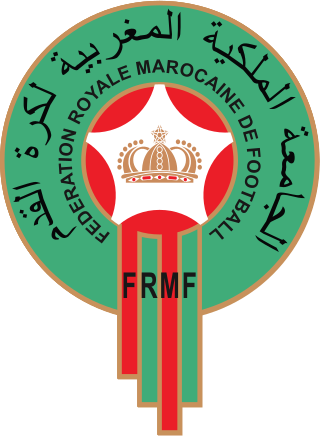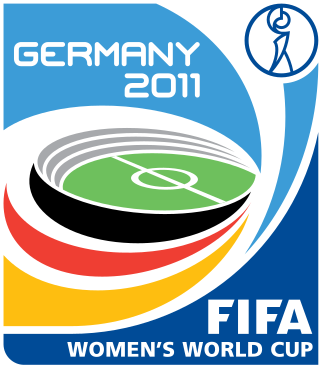
Union of European Football Associations is one of six continental bodies of governance in association football. It governs football, futsal and beach football in Europe and the transcontinental countries of Russia, Turkey, Azerbaijan, Georgia, and Kazakhstan, as well as Asian countries such as Israel, Cyprus and Armenia. UEFA consists of 55 national association members. Because of the 2022 Russian invasion of Ukraine, FIFA and UEFA suspended all Russian national teams and clubs from any FIFA and UEFA competitions.

The 1974 FIFA World Cup was the tenth FIFA World Cup, a quadrennial football tournament for men's senior national teams, and was played in West Germany between 13 June and 7 July. The tournament marked the first time that the current trophy, the FIFA World Cup Trophy, created by the Italian sculptor Silvio Gazzaniga, was awarded. The previous trophy, the Jules Rimet Trophy, had been won for the third time by Brazil in 1970 and awarded permanently to the Brazilians. This was the first out of three World Cups to feature two rounds of group stages.
The European/South American Cup, more commonly known as the Intercontinental Cup and from 1980 to 2004 as the Toyota European/South American Cup for sponsorship reasons, was an international football competition endorsed by UEFA (Europe) and CONMEBOL, contested between representative clubs from these confederations, usually the winners of the UEFA Champions League and the South American Copa Libertadores. It ran from 1960 to 2004, when it was succeeded by the FIFA Club World Championship, although they both ran concurrently in 2000.
The FIFA Confederations Cup was an international association football tournament for men's national teams, held every four years by FIFA. It was contested by the holders of each of the six continental championships, along with the current FIFA World Cup holder and the host nation, to bring the number of teams up to eight.

The German Football Association is the governing body of football, futsal, and beach soccer in Germany. A founding member of both FIFA and UEFA, the DFB has jurisdiction for the German football league system and is in charge of the men's and women's national teams. The DFB headquarters are in Frankfurt am Main. Sole members of the DFB are the German Football League, organising the professional Bundesliga and the 2. Bundesliga, along with five regional and 21 state associations, organising the semi-professional and amateur levels. The 21 state associations of the DFB have a combined number of more than 25,000 clubs with more than 6.8 million members, making the DFB the single largest sports federation in the world.
The FIFA Club World Cup is an international men's association football competition organised by the Fédération Internationale de Football Association (FIFA), the sport's global governing body. The competition was first contested in 2000 as the FIFA Club World Championship. It was not held from 2001 to 2004 due to a combination of factors in the cancelled 2001 tournament, most importantly the collapse of FIFA's marketing partner International Sport and Leisure (ISL), but since 2005 it has been held every year, and has been hosted by Brazil, Japan, the United Arab Emirates, Morocco and Qatar. Views differ as to the cup's prestige: it struggles to attract interest in most of Europe, and is the object of heated debate in South America.

The Polish Football Association is the governing body of association football in Poland. It organizes the Polish football leagues, the Polish Cup and the Polish national football team. It is based in the Polish capital of Warsaw.
FIFA is the international governing body of association football, futsal and beach soccer. It is one of the world's oldest and largest NGOs, being founded on 21 May 1904. It has since expanded to include 211 member associations.

The Royal Moroccan Football Federation, is the governing body of football in Morocco. It was established in 1956. It became a member in the FIFA in 1960, and in the same year it also became a member in the CAF association. It organizes the football league, the Botola, the Morocco national football team and the Morocco women's national football team. It is based in Rabat. it is also a member of the UAFA and UNAF.

The 2011 FIFA Women's World Cup was the sixth FIFA Women's World Cup competition, the world championship for women's national association football teams. It was held from 26 June to 17 July 2011 in Germany, which won the right to host the event in October 2007. Japan won the final against the United States on a penalty shoot-out following a 2–2 draw after extra time and became the first Asian team to win a senior FIFA World Cup.

Beach Soccer Worldwide (BSWW) is the organisation responsible for the founding and growth of association football's derivative sport of beach soccer. The founding partners of BSWW codified the rules of beach soccer in 1992, with BSWW as it is known today having been officially founded in late 2000 as a singular institution to develop the sport and organise international beach soccer competitions across the globe, primarily between national teams. The company is recognised as playing the biggest role in helping to establish the rules of beach soccer, to spread and evolve the sport around the world as cited by FIFA who took on governing body status of the sport from BSWW in 2005. Having established the sport's key regulations, FIFA acknowledged BSWW's framework, making their rules the official laws of beach soccer and now controls them and any modifications.

The Senegalese Football Federation is the governing body of football in Senegal. It is based in the capital of Senegal, Dakar, and was founded in 1960. The FSF aided in the development of football in Senegal, specifically for its professional and amateur leagues, youth and women's football and academies. Currently the FSF oversees the professional leagues, run by the Ligue Sénégalaise de Football Professionnel (LSFP) and fully organises the national teams, youth, women's and amateur football and all football administration.

The Copa Rio was the first intercontinental club football tournament with teams from Europe and South America, having been held on two occasions, in 1951 and 1952, in Brazil. Both editions were organised and endorsed by the Brazilian Sports Confederation, the then Brazilian FA and sports main body. The tournament is often regarded in Brazil as an official tournament, at least as far as the Brazilian clubs are concerned. The name Copa Rio, Portuguese for Rio Cup, was a homage to Rio de Janeiro City. The 1951 edition of the competition was also hailed as "Club World Cup" or "World Champions Cup" by the Brazilian FA and press. Though some previous club competitions may have been hailed as "the club world contest", Copa Rio was the first attempt at creating a Club World Cup with intercontinental reach.

Ottorino Barassi was an Italian sports official.

The 2013 FIFA Confederations Cup was the ninth FIFA Confederations Cup, which was held in Brazil from 15 to 30 June 2013 as a prelude to the 2014 FIFA World Cup. The most recent winners of the six continental championships appeared in the tournament, along with hosts Brazil and UEFA Euro 2012 runners-up Italy, who qualified because the Euro 2012 winners, Spain, had also won the most recent FIFA World Cup in 2010 thus securing a spot in the tournament.

The Union of French Athletic Sports Societies was a former sports governing body in France. During the 1890s and early 1900s it organised numerous sports including athletics, cycling, field hockey, fencing, croquet, and swimming. However it is perhaps best known for being the principal governing body of both football and rugby union until it was effectively replaced by the French Football Federation and the French Rugby Federation. The USFSA rejected any form of professionalism and were strong advocates of amateur sport.

The 2017 FIFA Confederations Cup was the 10th and final edition of the FIFA Confederations Cup, a quadrennial international men's football tournament organised by FIFA. It was held in Russia, from 17 June to 2 July 2017, as a prelude to the 2018 FIFA World Cup.

The West African Football Union, officially abbreviated as WAFU-UFOA and WAFU, is an association of the football playing nations in West Africa. It was the brainchild of the Senegal Football Federation who requested that the nations belonging to CAF's Zone A and B meet and hold a regular competitive tournament. The union organises several competitions including the WAFU Nations Cup and in 2008 they organised an under-20 championship.

The 2022 FIFA World Cup qualification was the qualifying process which decided the 31 teams that would join hosts Qatar, who received an automatic spot, at the 2022 FIFA World Cup.

The association football tournament at the 2020 Summer Olympics was held from 21 July to 7 August 2021 in Japan.















